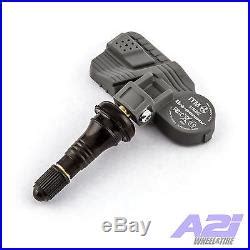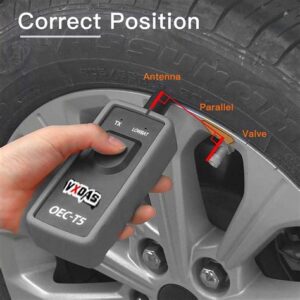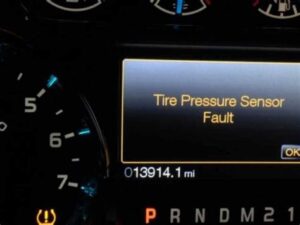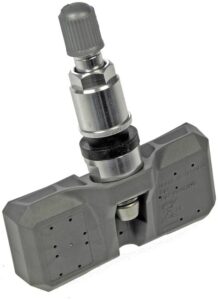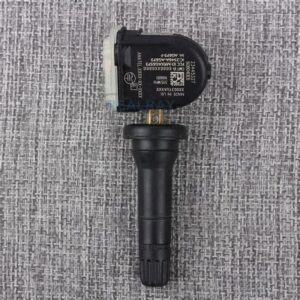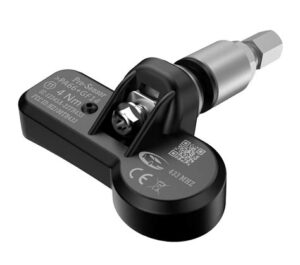Explore Denso Tire Pressure Sensors: their benefits, functionality, installation process, and how they compare to other tire pressure monitoring systems.In the world of automotive technology, ensuring optimal tire performance is crucial for safety and efficiency. Denso tire pressure sensors have emerged as a leading choice for monitoring tire health, providing accurate real-time data that can enhance vehicle performance. This blog post will delve into the essentials of Denso tire pressure sensors, exploring their features, benefits, and operational mechanisms. We will also guide you through the installation process, ensuring that you can take full advantage of this innovative technology. Additionally, we will compare Denso sensors with other options in the market, highlighting why they stand out for both everyday drivers and automotive enthusiasts. Whether you’re looking to improve your vehicle’s safety, efficiency, or overall performance, understanding Denso tire pressure sensors is a step in the right direction.
What are Denso Tire Pressure Sensors?
Denso Tire Pressure Sensors are advanced devices designed to monitor the air pressure within a vehicle’s tires. These sensors play a critical role in ensuring optimal tire performance and safety. When the tire pressure drops below recommended levels, it can lead to decreased fuel efficiency, uneven tire wear, and reduced vehicle handling.
Typically, Denso sensors operate using either a direct or indirect method:
- Direct TPMS: These sensors are mounted inside the tire and measure the air pressure directly. They provide real-time data to the vehicle’s onboard computer system.
- Indirect TPMS: These sensors monitor the tire’s rotational speed through the ABS (Anti-lock Braking System) and use this information to infer tire pressure changes.
Denso offers a variety of TPMS sensors that are highly regarded in the automotive industry for their reliability and precision. They come equipped with features such as:
- Robust Build Quality: Designed to withstand extreme environmental conditions.
- Long Battery Life: Ensures minimal maintenance and replacements.
- Easy Compatibility: Compatible with a wide range of vehicle makes and models.
Overall, Denso Tire Pressure Sensors are an essential component in modern vehicles, helping to enhance safety and efficiency on the road.
Benefits of Using Denso Sensors
Denso Tire Pressure Sensors are renowned for their reliability and performance. Here are some key benefits of using Denso Sensors:
- Accurate Readings: Denso Sensors provide precise tire pressure measurements, ensuring that drivers receive accurate data for optimal vehicle performance.
- Increased Safety: Keeping tires at the correct pressure helps prevent blowouts and improves overall safety on the road.
- Improved Fuel Efficiency: Proper tire pressure contributes to better fuel economy, reducing the frequency of refueling and saving money in the long run.
- Durability and Longevity: Denso sensors are designed to withstand harsh environmental conditions, providing extended service life compared to some other brands.
- Ease of Installation: The installation process for Denso Sensors is user-friendly, often allowing for quick replacement without the need for specialized tools.
- Compatibility: Denso Sensors are compatible with a wide range of vehicle makes and models, making them a versatile choice for various applications.
- Advanced Technology: Utilizing state-of-the-art technology, Denso Sensors are engineered to enhance vehicle safety and efficiency.
Incorporating Denso Tire Pressure Sensors into your vehicle’s maintenance routine can lead to numerous advantages that not only improve performance but also contribute to safety and cost-effectiveness.
How Do Denso Sensors Work?
Denso Tire Pressure Sensors are advanced devices that play a critical role in maintaining optimal tire performance and safety. Understanding how these sensors operate is essential for anyone looking to enhance their vehicle’s performance.
These sensors are designed to monitor the tire pressure and provide real-time data to the driver. Here’s a breakdown of how Denso sensors work:
- Pressure Detection: Denso sensors utilize a precise pressure sensor that measures the air pressure inside the tire. This data is crucial as it helps in identifying under-inflated or over-inflated tires.
- Temperature Monitoring: In addition to pressure, Denso sensors also measure the temperature of the tire. Temperature fluctuations can affect tire pressure and overall performance.
- Wireless Communication: Once the sensors gather this data, it is transmitted wirelessly to the vehicle’s onboard computer system. This communication typically utilizes a special radio frequency technology.
- Data Interpretation: The onboard system then interprets the received data, comparing it against predetermined thresholds to determine if the tire pressure is within the safe range.
- Alert System: If the system detects any anomalies such as low pressure or significant temperature changes, it triggers a warning light on the driver’s dashboard, prompting immediate attention.
This process is vital for ensuring driver safety and enhancing vehicle efficiency. By providing real-time monitoring, Denso Tire Pressure Sensors help prevent tire blowouts and improve fuel efficiency through proper tire maintenance.
In summary, the operation of Denso sensors involves an intricate interplay of pressure and temperature detection, wireless communication, and real-time data interpretation, critical for maintaining vehicle safety and performance.
Installation Process for Denso Sensors
Installing Denso Tire Pressure Sensors is a straightforward process that can enhance your vehicle’s performance and safety. Below, we outline the steps involved in the installation, making sure your sensors work efficiently and effectively.
Required Tools and Materials
- Denso Tire Pressure Sensors
- Vehicle jack and jack stands
- Lug wrench
- Torque wrench
- Digital Tire Pressure Gauge (optional)
Step-by-Step Installation Guide
- Prepare Your Vehicle: Park your vehicle on a flat surface, turn off the engine, and engage the parking brake.
- Lift the Vehicle: Use a vehicle jack to lift your car. Secure it with jack stands to ensure safety during the installation.
- Remove the Wheel: Use a lug wrench to loosen and remove the lug nuts and take off the wheel where you want to install the Denso Sensors.
- Remove Old Sensors (if applicable): If you’re replacing old tire pressure sensors, carefully detach them from the valve stems.
- Install New Denso Sensors: Attach the new Denso Tire Pressure Sensors to the valve stems. Ensure they are securely fastened but do not over-tighten.
- Reinstall the Wheel: Place the wheel back onto the hub, and hand-tighten the lug nuts. Make sure the wheel is properly aligned with the brake disc.
- Tighten the Lug Nuts: Use a torque wrench to tighten the lug nuts to the manufacturer’s specified torque settings (usually found in the vehicle’s manual).
- Repeat for Other Wheels: If you are installing sensors on all tires, repeat the above steps for each wheel.
- Lower the Vehicle: Remove the jack stands and carefully lower the vehicle back to the ground.
- Initialize the Sensors: Start your vehicle and allow the onboard computer to recognize the new sensors. This process may take a few minutes, and you might also use a compatible tool to sync them.
Final Check
After installation, check the tire pressures using a digital tire pressure gauge to verify that everything is in order. The Denso Sensors should now be operational, helping you maintain safe and efficient driving conditions.
Tips for a Successful Installation
Always refer to the vehicle’s manual for specific instructions related to your model, as some vehicles may have unique requirements for tire sensor installations.
By following these steps, you can ensure a proper installation of Denso Tire Pressure Sensors, contributing to enhanced vehicle safety and performance.
Comparison with Other Tire Pressure Sensors
When it comes to tire pressure monitoring systems (TPMS), there are various options available on the market. Denso tire pressure sensors are well-known for their reliability and performance, but how do they stand up against other brands? In this section, we’ll compare Denso sensors with other tire pressure sensors based on several key factors.
| Feature | Denso Sensors | Other Sensors |
|---|---|---|
| Accuracy | High accuracy readings, typically within ±1 PSI | Varies; some may have less consistent readings |
| Durability | Designed for long-lasting performance even in extreme conditions | Durability varies; some may require more frequent replacements |
| Compatibility | Works with a wide range of vehicle makes and models | Some sensors may be limited to specific brands or models |
| Installation | Easy installation with minimal tools required | Installation methods and complexity can vary greatly |
| Price Range | Mid-range pricing with good value for performance | Wide range; some cheaper options lack quality |
In conclusion, while there are numerous tire pressure sensor options available, Denso tire pressure sensors frequently outperform the competition in accuracy and durability. It’s important to consider your specific needs and vehicle type when selecting the right sensor for your tires. The investment in Denso sensors often pays off with longer life, better performance, and peace of mind while driving.
Frequently Asked Questions
What are Denso tire pressure sensors?
Denso tire pressure sensors are advanced devices designed to monitor and report the air pressure in vehicle tires, ensuring optimal safety and performance.
How do Denso tire pressure sensors work?
These sensors use a combination of pressure transducers and transmitters to measure tire pressure and send real-time data to the vehicle’s onboard computer or dashboard display.
What are the benefits of using Denso tire pressure sensors?
The benefits include improved vehicle safety, enhanced fuel efficiency, better tire longevity, and reduced risk of tire-related accidents.
Are Denso tire pressure sensors compatible with all vehicles?
Denso tire pressure sensors are compatible with a wide range of vehicles, but it’s essential to check the specifications to ensure proper fitment.
How often should Denso tire pressure sensors be checked?
It’s recommended to check the tire pressure sensors regularly, ideally every month and before long trips, to ensure they are functioning correctly.
Can Denso tire pressure sensors be replaced by the owner?
While some experienced car owners may replace them, it’s generally advisable to have a professional technician handle the replacement to ensure proper installation and functionality.
What should I do if my Denso tire pressure sensor is malfunctioning?
If a Denso tire pressure sensor is malfunctioning, it’s best to have it diagnosed and repaired by a qualified mechanic who can check for errors and replace the sensor if necessary.
